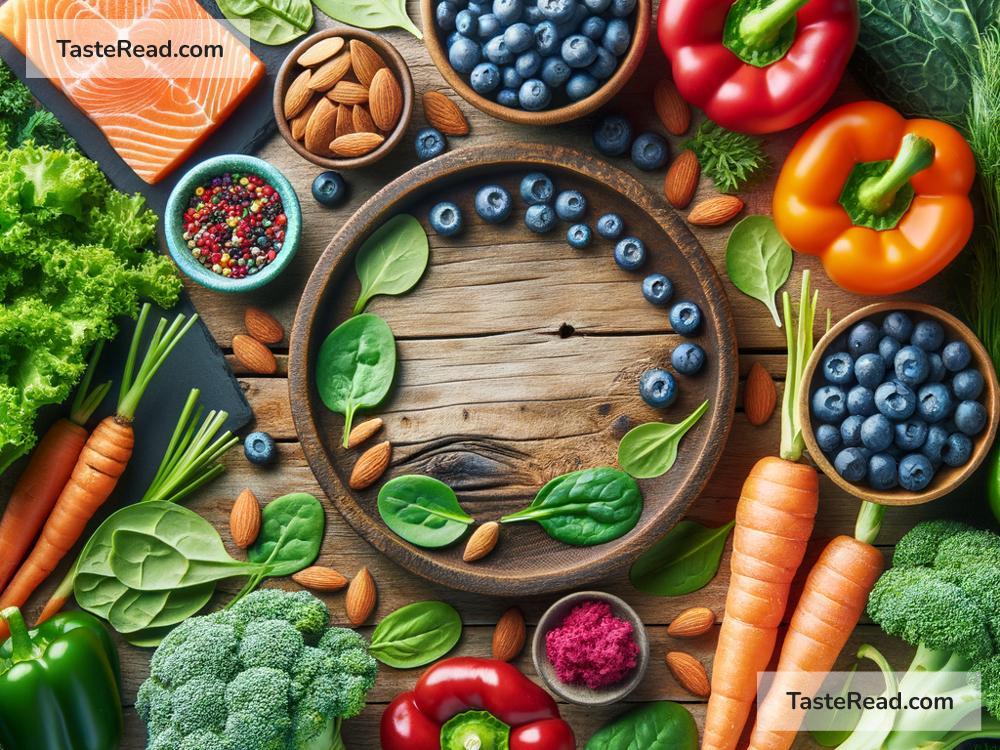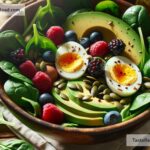Foods for Eye Health: Eating Your Way to Better Vision
Our eyes are among the most important parts of our body. They help us see the world, navigate our daily lives, and enjoy beautiful sights. But just like the rest of our body, our eyes need proper care to stay healthy. One way to protect your eyes is by eating foods that are good for your vision. In this article, we’ll talk about some of the best foods for eye health and how they can keep your eyes strong and functioning well.
Why Is Food Important for Eye Health?
Our eyes rely heavily on vitamins, minerals, and other nutrients. These nutrients help reduce the risk of eye problems like cataracts, dry eyes, glaucoma, and age-related macular degeneration (AMD), a common cause of vision loss in older adults. Adding the right foods to your diet can make a big difference in how well your eyes perform over time.
The Best Foods for Eye Health
Many common foods can boost your eye health. Here are some of the best ones:
1. Carrots
Carrots are probably the most well-known food for eye health. That’s because they’re rich in beta-carotene, a type of vitamin A that helps the eyes stay healthy. Vitamin A supports the retina, which is the part of the eye that allows us to see in dim light. Eating carrots regularly may improve vision and reduce the risk of night blindness.
2. Spinach and Kale
Spinach, kale, and other leafy green vegetables are packed with lutein and zeaxanthin. These two powerful antioxidants help protect your eyes from damage caused by blue light and ultraviolet (UV) rays. They may also lower your risk of macular degeneration and cataracts. Try adding spinach or kale to your salads, smoothies, or soups for a nutrient boost.
3. Fish (Especially Salmon and Tuna)
Fatty fish like salmon, tuna, mackerel, and trout are rich in omega-3 fatty acids. These healthy fats are essential for maintaining the health of your retina and reducing the risk of dry eyes. If you don’t eat fish, you can take omega-3 supplements or look for plant-based sources like walnuts and flaxseeds.
4. Eggs
Eggs are a simple yet powerful food for your eyes. They contain lutein, zeaxanthin, and zinc — nutrients that help keep the retina healthy and protect against macular degeneration. You’ll also find vitamin A in egg yolks, which helps reduce the risk of dry eyes. Plus, eggs are affordable and easy to cook in many ways.
5. Citrus Fruits
Oranges, lemons, grapefruits, and other citrus fruits are excellent sources of vitamin C. Vitamin C is an antioxidant that fights free radicals, which can damage the cells in your eyes. It also helps the body produce collagen, an important protein that supports the structure of the cornea. Including citrus fruits in your diet is a delicious way to protect your eyes.
6. Nuts and Seeds
Almonds, sunflower seeds, chia seeds, and other nuts and seeds are rich in vitamin E. Like vitamin C, vitamin E protects your eyes from damage caused by free radicals. Studies suggest that getting enough vitamin E can lower the risk of age-related macular degeneration and cataracts. Snack on a handful of nuts for a quick, eye-healthy treat.
7. Sweet Potatoes
Similar to carrots, sweet potatoes are packed with beta-carotene, which converts to vitamin A in your body. Sweet potatoes are also rich in vitamin C and vitamin E, making them a triple threat for healthy eyes. They’re easy to bake, roast, or mash for a nutritious side dish.
8. Bell Peppers
Bell peppers are one of the best sources of vitamin C, which helps protect the nerves in your eyes and promotes good blood flow to the retina. The different colors of bell peppers — red, green, yellow, and orange — add variety to your meals while giving your eyes a healthy boost. They’re tasty raw, sautéed, or grilled.
9. Blueberries
Blueberries and other dark-colored berries are loaded with antioxidants. They can improve night vision and support overall eye health. Blueberries also contain vitamins C and E, making them a superfood for your eyes.
10. Broccoli
Broccoli is a nutrient powerhouse filled with vitamin C, vitamin E, and lutein. These nutrients work together to keep your eyes in top condition and reduce the risk of eye diseases over time. Adding broccoli to your meals can also improve your immune system — a bonus for your overall health.
Other Tips for Eye Health
While eating these foods can help your eyes, food alone isn’t enough. Here are some other tips to keep your eyes healthy:
- Wear sunglasses to protect your eyes from UV rays.
- Take breaks from screens to avoid eye strain.
- Stay hydrated to prevent dry eyes.
- Get regular eye check-ups, especially as you age.
Conclusion
Taking care of your eyes is easier than you might think. By eating a variety of foods rich in vitamins, minerals, and antioxidants, you can support your vision and reduce the risk of eye-related problems in the future. Simple steps like adding more carrots, fish, spinach, and citrus fruits to your diet can make a big difference. So, next time you grocery shop, remember to pick foods that help your eyesight — your eyes will thank you!


